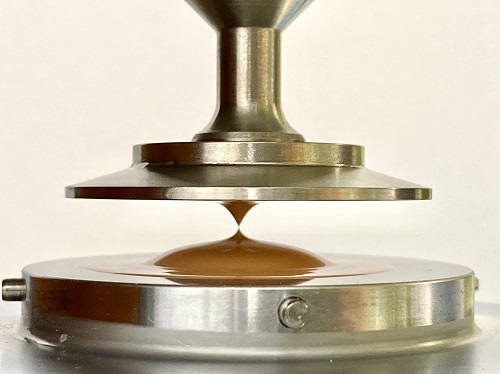What is rheology?
Rheology is the science of flowing matter, of the stresses that should be exerted to this aim, and of the structural changes that result of it. Rheology allows to address industrial issues from the standpoint of the physical structure of fluid or semi-solid materials. Rheology thus goes beyond the measurement of viscosities, which are the exclusive properties of Newtonian fluids only (water, oils, gases). Pretty much all other products are non-Newtonan, and feature a variable viscosity depending on the exerted solicitation, and an elasticity which reflects the molecular structure.
The interest of rheology spreads from the formulation to the use of products, including the industrialisation, the continuous improvement and the quality control. Whenever a product is handled and its structure modified, its rheological behaviour is key: understanding the rheology of a product is therefore strategic, and mastering it is an economic asset.
Issues connected to rheology require experts with competences at the interface between several scientific and technologic fields: mechanics, fluid mechanics, heat science, soft matter physics, materials science, process engineering, polymer chemistry and biology.
This multidisciplinarity, associated to strong technical skills, make the value of the products and studies carried out by the Rheonova experts.
